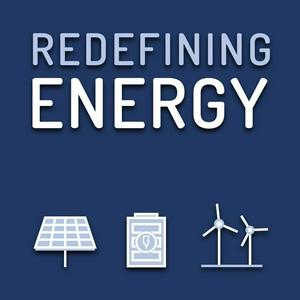Last month, Gerard Reid joined Shayle Kann, Managing Partner at Energy Impact Partners, for a world class and fast-moving conversation on the state and future of Climate Tech. The discussion was organised by Carbon Equity and led by its co-founder Liza Rubinstein Malamud.
Originally it featured a third guest, Will Dufton of Giant Ventures, whose contributions were fully edited for this episode (with apologies — and an open invitation to return).
First strong statement: the Silicon Valley-style climate tech era of 2021–2022 is over. Gerard is clear that carbon removal and hydrogen, at least as they were framed and funded during the hype cycle, are effectively dead. What comes now is a far more grounded, infrastructure-driven view of the transition.
Both guests are emphatically bullish on energy and AI. Shayle especially sees climate tech not as a standalone vertical, but as a horizontal that cuts across the entire economy. Anything that supports electrification, datacenters, and energy-hungry digital infrastructure represents a major opportunity. Gerard pushes the horizon even further, imagining datacenters in space.
A central theme is the convergence of AI and the physical world. Shayle argues that as large language models become commoditised, value will move from bits to atoms — from software to real-world systems, infrastructure, and industrial processes. Gerard complements this with a strong emphasis on resilience, positioning it as a defining investment lens for the coming decade.
On batteries, there is rare and total agreement. Both see them as the most important technology of our time, underpinning electrification, grid stability, transport, and the scaling of renewables.
What emerges is an intense, wide-ranging exchange between two of the sharpest minds in the energy transition — a true Battle Royale on where climate, energy, and technology are heading next.
You can watch the hour-long video here:
https://youtu.be/H5YE1Upe0JI?si=HlgHKFOOjZj8Gygp


